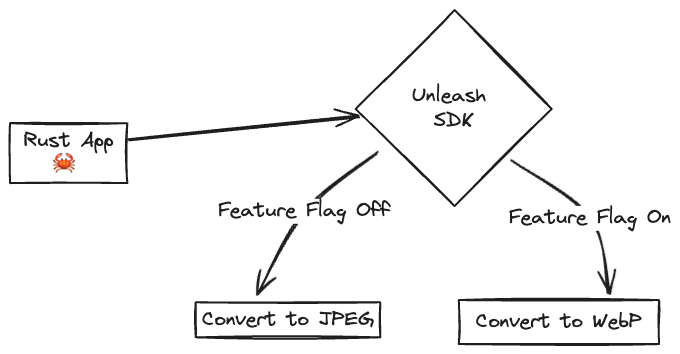Rust 1.81.0 Can I Play Rust On Official Servers
Rust is a modern systems programming language designed to provide memory safety without sacrificing performance. Created by Mozilla and first released in 2010, Rust addresses many of the limitations found in older languages like C and C++. Its standout feature is its ownership system, which enforces strict rules about how memory is accessed and managed. This prevents common issues like null pointer dereferencing, data races in concurrent programming, and buffer overflows, all of which are common in low-level languages. By doing so, Rust allows developers to write high-performance, reliable code without needing to rely on manual memory management.
Rust Programming Overview
Rust’s syntax is similar to C++, but it also integrates many concepts from functional programming languages like Haskell. The language supports pattern matching, higher-order functions, and traits, making it versatile for a wide range of programming paradigms. Rust is known for its excellent compiler, which provides detailed and helpful error messages, making it beginner-friendly despite being a systems language. The built-in package manager, Cargo, simplifies dependency management and project building, ensuring a smooth workflow from development to production.
One of Rust’s most significant achievements is its growing ecosystem, particularly in the areas of systems development, web development, and embedded programming. Tools like the Rocket framework for web applications, and libraries for game development and machine learning, are gaining popularity. Rust’s ability to generate efficient, low-level machine code has made it a strong competitor to C and C++ in industries that require high performance and safety, such as operating system development and blockchain.
Rust’s community-driven development model is another reason for its rapid adoption. Regular updates and improvements are driven by both Mozilla and a thriving open-source community. This commitment to improvement, alongside Rust’s focus on memory safety, concurrency, and speed, positions it as one of the most exciting languages for modern software development.
Rust Key Features:
- Memory Safety: Rust’s ownership system ensures memory safety by preventing common issues like null pointer dereferences and buffer overflows. Its borrow checker enforces strict memory access rules, reducing runtime errors and vulnerabilities.
- Zero-Cost Abstractions: Rust allows high-level abstractions without incurring performance penalties. Developers can write efficient, low-level code while using features like pattern matching, generics, and traits, which are typically associated with higher-level languages.
- Concurrency without Data Races: Rust’s ownership and borrowing system ensures that data races are caught at compile time, making concurrent programming safer and easier to implement. This makes Rust ideal for multi-threaded applications and parallel computing.
- Rich Type System: Rust’s type system provides features like algebraic data types, pattern matching, and generics, ensuring code is both flexible and robust. Strong static typing helps catch many potential bugs during the compilation process.
- Cross-Platform Support: Rust is highly portable, supporting development on a wide range of platforms, from Windows, Linux, and macOS to more specialized systems like embedded devices.
- Powerful Tooling: Rust comes with Cargo, its package manager and build system, which simplifies project management, dependency handling, and compiling. Additionally, the Rust compiler is known for its informative and user-friendly error messages.
- Growing Ecosystem: Rust’s ecosystem continues to expand with libraries and frameworks for web development, game development, systems programming, and more.
- Performance Comparable to C/C++: Rust generates highly optimized machine code, allowing it to compete with traditional systems programming languages like C and C++. Its focus on performance and safety makes it suitable for resource-constrained environments
What’s New:
- Async/Await Enhancements: Rust continues to improve its support for asynchronous programming with refinements in the async/await syntax. These updates make writing asynchronous code more intuitive and efficient, allowing developers to handle I/O-bound tasks, such as networking, more easily without blocking threads.
- Const Generics: A major addition in recent Rust versions is const generics, which allows developers to write more flexible and reusable code by enabling types to accept constant values as parameters. This is particularly useful in systems programming and embedded development where compile-time optimizations are crucial.
- Non-Lexical Lifetimes (NLL): Rust has introduced non-lexical lifetimes, which improve the borrow checker’s ability to analyze and validate references in code. This allows for more flexibility in borrowing without sacrificing safety, resulting in fewer errors related to borrowing and lifetimes.
- Improved Clippy and Rust Analyzer: Rust’s tooling has received significant updates, with improvements to Clippy, Rust’s linting tool, and Rust Analyzer, which enhances code completion, diagnostics, and overall developer experience within IDEs. These tools help catch potential issues early and improve productivity.
- Attribute Macros: This enhances metaprogramming capabilities and simplifies complex code generation.
- Faster Compilation: Ongoing performance improvements in the Rust compiler have led to faster build times and more efficient compilation processes. This helps reduce development cycles, making Rust even more appealing for large-scale projects.
SYSTEM REQUIREMENTS:
- Windows XP, Vista, 7, 8, 8.1, and 10 (32/64-bit)
- Processor 2 GHz Intel Core
- 4 GB Ram
- 430 MB Hard Space
- Personal use of free
HOW TO INSTALL/CRACK:
- Download from the given link below.
- Install as ordinarily Crack.
- Tap open & run it.
- Activate from given keys.
- That’s all.
- Enjoy it.
Registration Keys:
ID: 4E7B1
KEY: 2VDL-PUTT-8HBC-527D
ID: 4WL72
KEY: 2D45-RLCA-5AQL-2YEY
Conclusion:
Rust has rapidly established itself as one of the most innovative and reliable programming languages for modern systems development. With its unique combination of memory safety, zero-cost abstractions, and performance comparable to C/C++, it has become a top choice. The continuous enhancements in Rust, such as improved asynchronous support, const generics, and better tooling, reflect its evolving nature.
Whether you’re working on embedded systems, high-performance applications, or web development, Rust’s powerful features and growing ecosystem. Its focus on safety without compromising speed offers developers the confidence to build robust, scalable applications, setting it apart from traditional languages.

